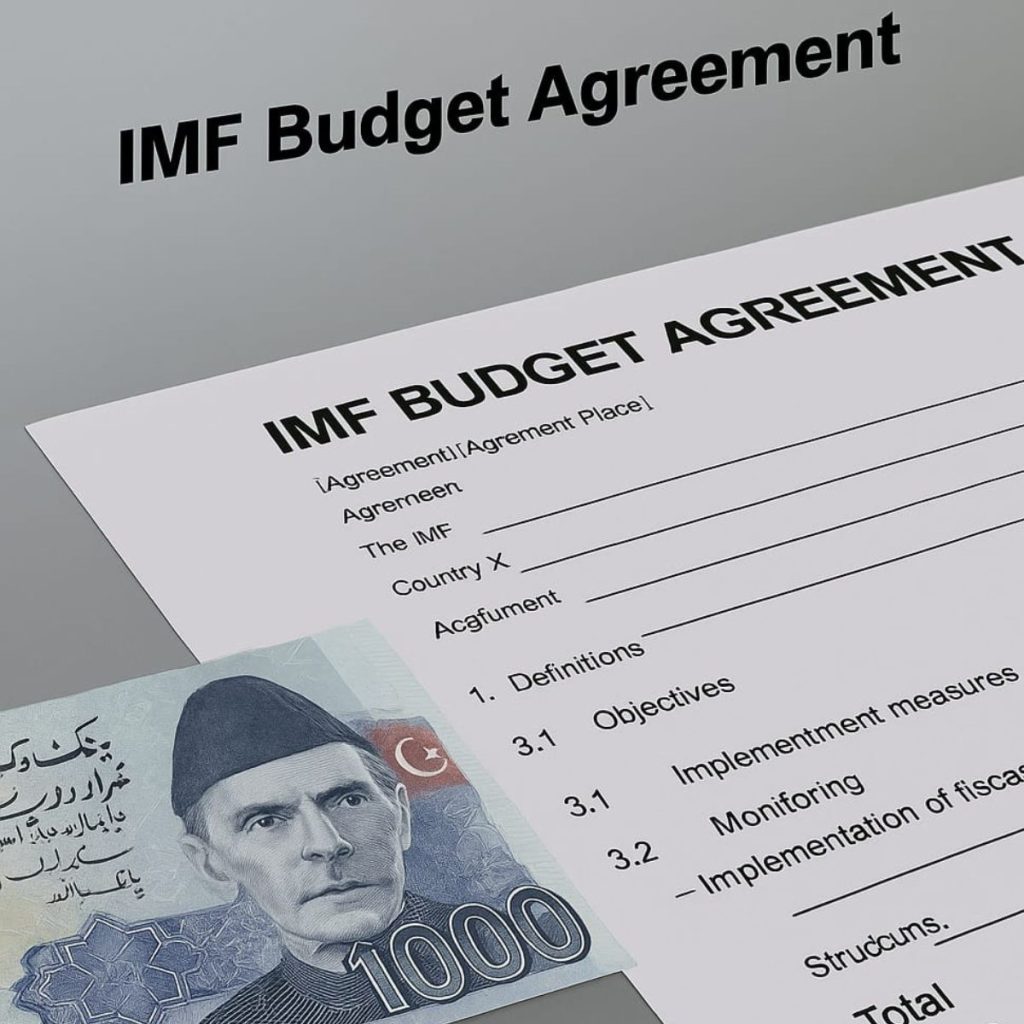The International Monetary Fund (IMF) and the Government of Pakistan have reached a preliminary agreement on a comprehensive financial framework, setting the stage for continued negotiations on the fiscal year 2025–26 budget. This development follows a series of high-level policy discussions initiated on May 19, 2025, in Islamabad, focusing on key economic reforms and fiscal strategies.

Constructive Engagement and Ongoing Discussions
The IMF mission, led by Nathan Porter, concluded its staff visit to Islamabad, emphasizing the constructive nature of the discussions held with Pakistani authorities. The talks centered on the FY2026 budget proposals and broader economic policy reforms supported by the 2024 Extended Fund Facility (EFF) and the 2025 Resilience and Sustainability Facility (RSF). Both parties acknowledged the need for continued dialogue to finalize the budget framework in the coming days .
Key Areas of Focus
The negotiations have identified several critical areas requiring further deliberation:
- Revenue Mobilization: Efforts are underway to enhance tax compliance and broaden the tax base. The Federal Board of Revenue (FBR) is facing significant shortfalls in the current fiscal year, prompting discussions on setting realistic revenue targets aligned with actual revenue potential, real GDP growth, and inflation .
- Expenditure Prioritization: The government aims to balance fiscal consolidation with the protection of social and priority expenditures. A primary budget surplus of 1.6% of GDP is targeted for FY2026, reflecting a commitment to prudent fiscal management .
- Tariff Reforms: Adjustments in energy tariffs are being considered to reduce circular debt and improve the financial viability of the energy sector. These reforms are part of broader structural changes aimed at fostering sustainable growth and promoting a more level playing field for business and investment .
- Defense and Development Spending: Allocations for defense and development projects are under review to align with fiscal targets and reform objectives. The proposed defense budget for FY2025–26 is Rs2.8 trillion, with considerations for additional funding to enhance military readiness amid regional security challenges .
Pending Issues and Reform Commitments
While progress has been made, certain areas remain under negotiation:
- Tax Concessions: Discussions continue regarding potential tax relief measures for the salaried class. The IMF has requested Pakistan to propose alternative measures to provide relief without compromising revenue targets .
- Real Estate Policies: Reforms related to the real estate sector are still being deliberated, focusing on enhancing transparency and broadening the tax base.
- Privatization of State-Owned Enterprises: The government is considering the privatization of certain state-owned enterprises as part of its commitment to structural reforms and reducing fiscal burdens.
Monetary and Exchange Rate Policies
The IMF has emphasized the importance of maintaining an appropriately tight and data-dependent monetary policy to anchor inflation within the central bank’s medium-term target range of 5–7%. Additionally, rebuilding foreign exchange reserves, preserving a fully functioning forex market, and allowing for greater exchange rate flexibility are considered critical to strengthening resilience against external shocks .
Next Steps and Future Engagement
The IMF has announced that the next review of Pakistan’s funding program is scheduled for the second half of 2025. In the meantime, both sides will continue to work towards finalizing the FY2025–26 budget, with the Pakistani government postponing its announcement to June 10 to accommodate ongoing discussions .
The IMF mission expressed gratitude to the federal and provincial authorities for their hospitality, constructive discussions, and strong collaboration. The IMF team will remain engaged and continue its close dialogue with the authorities to support Pakistan’s economic reform agenda.
As negotiations progress, the focus remains on achieving a balanced budget that supports economic stability, growth, and social welfare, while addressing structural challenges and ensuring fiscal sustainability.